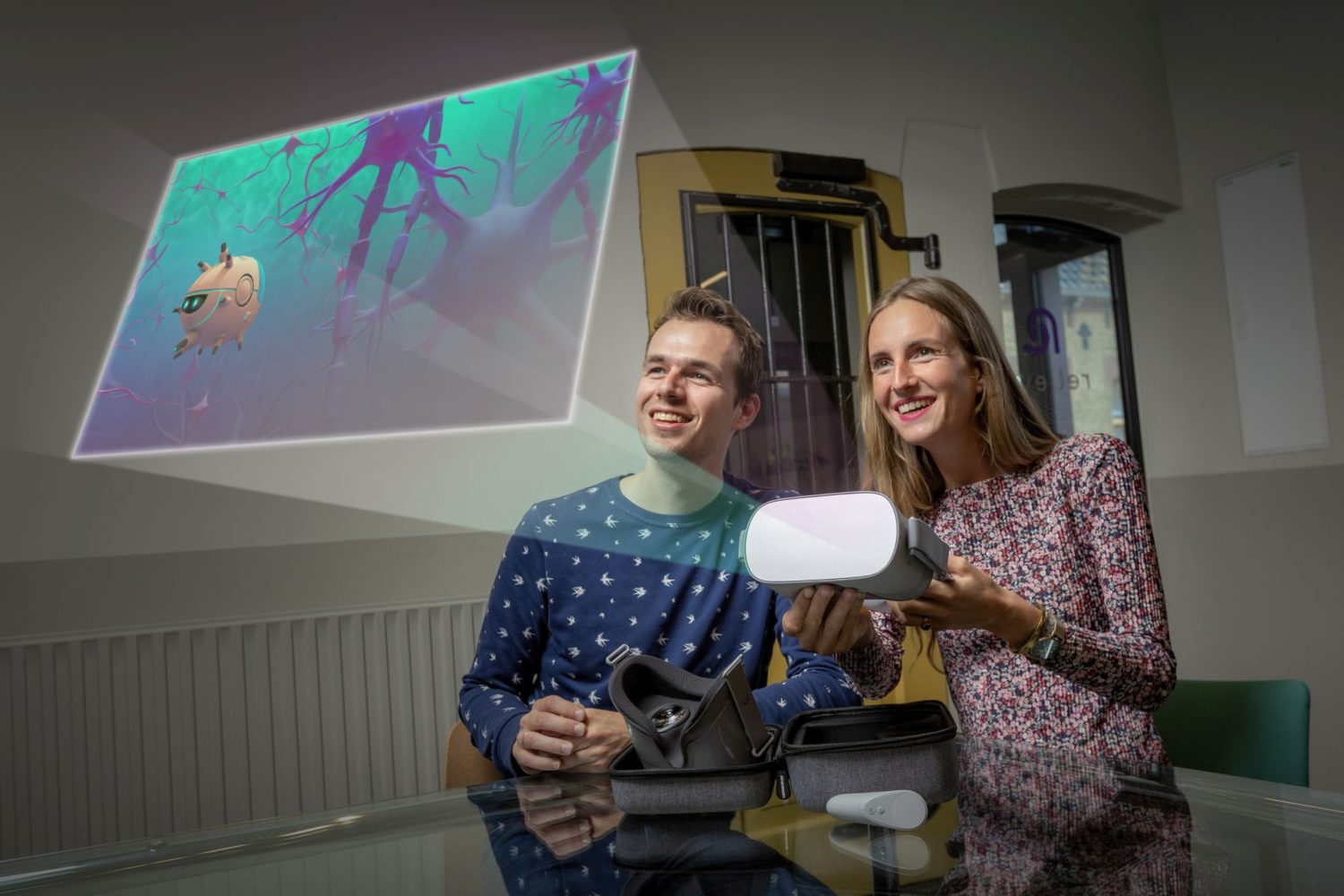They are innovative, entrepreneurial and willing to go all the way: Margryt Fennema and Louis Zantema found each other in their ambition to be meaningful for people with chronic pain. To have a real impact, they think big. Partly due to a preliminary project at Flinc, they soon found significant investors for their promising serious game Reducept.
When they met - less than two years ago - there was an immediate click. He worked as a GZ-psychologist at the Medisch Centrum Leeuwarden (MCL); she found a place at the same hospital for her graduation project on digital innovation. Two down-to-earth Frisians with a heart for healthcare and an eye for opportunities in e-health: put the two together and you get the company Fennema & Zantema. 'We found each other in the desire to listen carefully to what patients need and to develop innovatively from there.'
The duo deliberately chose to be of significance at the MCL pain clinic. 'We observed that there is still a world to be gained in the education of patients with chronic pain. Knowing what pain is and how it works already makes a difference, research shows. From that basis, people can learn to positively influence pain and gain more control. Just as top athletes train to handle pain when delivering top performance, patients with chronic pain can also train their mindset to learn to live better with the pain.'
Huge range
As a GZ psychologist, Louis was already giving education trainings at the pain clinic. 'The point is that only a fraction of people with chronic pain come to this clinic. And often only after years of wandering, during which they have lost confidence. Knowledge transfer around pain is unfortunately still quite limited. And yet patients with chronic pain benefit from knowing as early as possible how pain works. If this does not happen, the consequences are huge. Quite apart from the impact on the lives of these patients, it leads to additional social costs: from healthcare treatments - which are far from always beneficial - to benefits when working is no longer possible.'
'This is quite a large group,' Margryt adds. 'On a European scale, as many as one in five adults has chronic pain symptoms, a third of which are quite severe. When we let that sink in, we saw that the usefulness of an educational training tool reaches much further than just the MCL pain clinic. And that was the beginning of Fennema & Zantema. We started this company to help as many people with chronic pain symptoms as possible to the best of our ability. Achieving that goal requires commercial success. In that respect, the market size turned out to be fortunate, because with that you attract investors and you can really realize a good product.'
Journey through the body
The enthusiastic pair developed their serious game Reducept in constant interaction with patients. 'We use proven psychological effects, but they only make sense if people actually start training with this tool. So you have to test with users from the very beginning. The valuable thing about virtual reality (VR) is its great impact on the emotional brain, making exercises more effective. Moreover, with VR we can visualize pain and let patients take a journey through their bodies. A journey where along the way they gain useful knowledge and learn effective strategies to positively influence their pain.'
The educational game seems to be catching on with a broad group with chronic pain symptoms. 'Meanwhile, 180 patients from different hospitals have done more than 1,500 sessions together and 77% report a reduction in pain afterwards. Some of them also notice that they can sleep better, are more relaxed, need fewer painkillers and become more active. Others experience this to a lesser degree or see no effect on their quality of life yet, but do indicate that they manage their pain better because of the game. And that's already a win. Moreover, Reducept is designed for training purposes and, as with sports, the more often you do it, the more results you get.'
Promising startup climate
The promising serious game quickly played its way into the spotlight. In 2018, the entrepreneurs won the Sustainable Healthcare Challenge with their idea, and this year they reached the finals of the National Healthcare Innovation Award. 'A confirmation that we are well on our way,' says the duo. 'You need a positive boost like that once in a while, because there's so much you have to deal with. Developing a game, starting a company: it's a learning curve on all fronts. It's tough, but if you're willing to work hard, there are wonderful opportunities for startups like ours. And such a plodding phase is immediately a good test for the future, to discover whether you really are an entrepreneur.'
Margryt and Louis have it in them, but also realize that they cannot do this alone. A good network and reliable partners are indispensable. For example, we are very happy with Flinc. They helped us well on our way in making our plans investor-ready, which meant we had a good match with significant investors fairly quickly. Ytsen van der Meer really guided us through that crucial phase. He made us think about things we didn't think about ourselves and pointed out opportunities we didn't know about. You really need that as a beginning entrepreneur, because you don't want to be an amateur in discussions with investors.'
The release of Reducept will be in two stages: in September, Fennema & Zantema will market a version for professional use by health care providers; in 2020, there will also be an edition that people with chronic pain conditions can purchase for themselves. Want more information?
Do you need funding to make your innovative plans a reality? With our experience and extensive funding network, we support you in finding investors.
